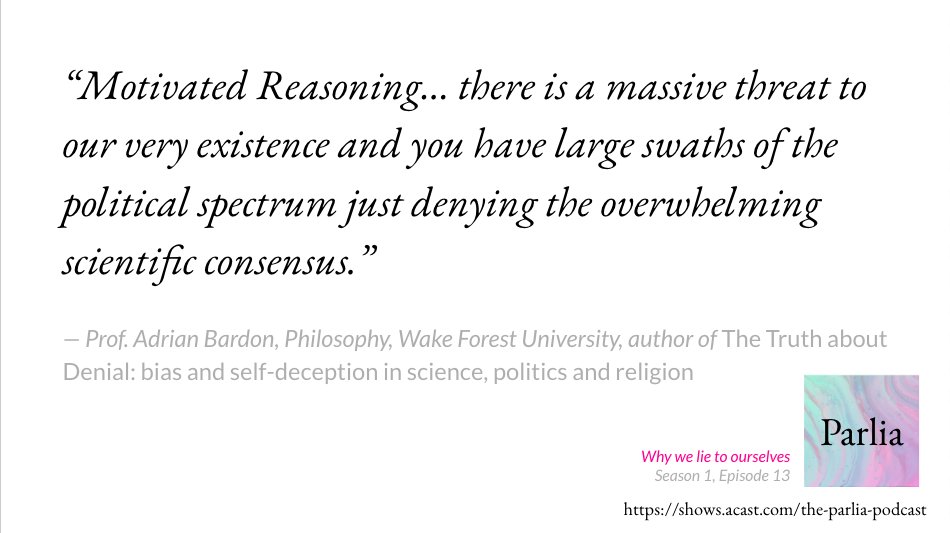We lie to ourselves all the time.
In fact, our thinking processes evolved to *help* us lie to ourselves about the facts around us.
Why?
Because being accurate about the world around you was often less important than agreeing with the people around you.
In fact, our thinking processes evolved to *help* us lie to ourselves about the facts around us.
Why?
Because being accurate about the world around you was often less important than agreeing with the people around you.
Whether the earth sits on a giant serpent, or is flat, or was created by a warty, self-immolating mini-god (I see you Nanahuatl)... ONLY has an impact on your life if you disagree with the majority - just ask Giordano Bruno.






In other words, it made more evolutionary sense to be wrong with others than it is to be right alone.
Others provide us with a sense of belonging, group solidarity, protection, even status.
Ideas? They're only really important as stories that bind us.
Others provide us with a sense of belonging, group solidarity, protection, even status.
Ideas? They're only really important as stories that bind us.
We are programmed therefore to privilege the emotional impact of a fact over its accuracy.
Not convinced?
What does it make you feel when I tell you Adolf Hitler was an exceptional speaker?
Not convinced?
What does it make you feel when I tell you Adolf Hitler was an exceptional speaker?
That process of weighing the *emotional* value of an idea (does it threaten my identity, does it attack my in-group, does it confuse my sense of the world) ABOVE its truthfulness is called 'motivated reasoning'.
And we all do it.
And we all do it.
In fact, as @drvox has put it: "Motivated reasoning is likely what cognition is *for*."
And there's masses of evidence to suggest that the cleverer and more educated we are, the better (or worse) we are at it. [See @d_a_robson's 'Intelligence Trap']
And there's masses of evidence to suggest that the cleverer and more educated we are, the better (or worse) we are at it. [See @d_a_robson's 'Intelligence Trap']
All that would be fine except:
1. motivated reasoning gets in the way of truth.
It's why scientists spend so long trying to take themselves out of their experiments, and making sure they're repeatable by others.
1. motivated reasoning gets in the way of truth.
It's why scientists spend so long trying to take themselves out of their experiments, and making sure they're repeatable by others.
2. motivated reasoning accentuates the divides that already exist in society along value-lines.
Liberals refuse to accept any data or evidence that would suggest a Conservative policy might objectively be better, and vice versa.
Liberals refuse to accept any data or evidence that would suggest a Conservative policy might objectively be better, and vice versa.
3. motivated reasoning is massively, explicitly and perilously thwarting our capacity to deal with the existential threat of Climate Change.



How?



How?
Listen to @adrian_bardon explain that, and a ton more, in 'Why we lie to ourselves' on the #ParliaPodcast @askParlia
https://www.parlia.com/article/why-we-lie-ourselves-with-adrian-bardon
https://www.parlia.com/article/why-we-lie-ourselves-with-adrian-bardon

 Read on Twitter
Read on Twitter


